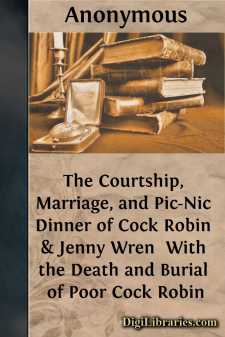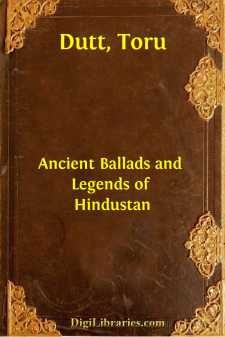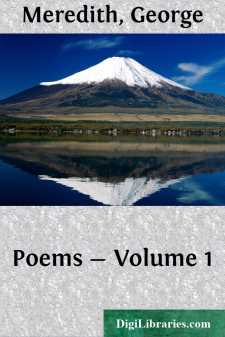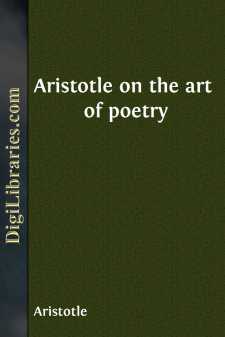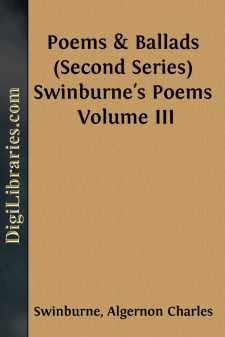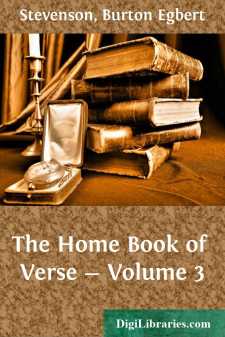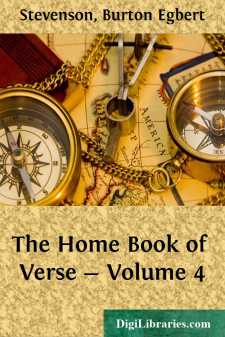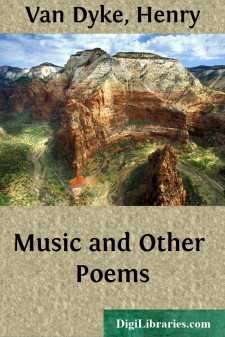Poetry Books
Sort by:
by:
Anonymous
GENERAL INVITATION.Jenny consented; the day was named,The joyful news the Cock proclaimed.Together came the Rook and Lark,The one as Parson, t'other Clerk.THE WEDDING.The Goldfinch gave the bride away,Who promis'd always to obey.The feathery tenants of the airTowards the Feast each gave a share.THE DINNER.The jovial party din'd together,And fine and pleasant was the weather.The...
more...
by:
Toru Dutt
TORU DUTT. INTRODUCTORY MEMOIR. If Toru Dutt were alive, she would still be younger than any recognized European writer, and yet her fame, which is already considerable, has been entirely posthumous. Within the brief space of four years which now divides us from the date of her decease, her genius has been revealed to the world under many phases, and has been recognized throughout France and England....
more...
by:
George Meredith
XXXIV O, take to your fancy a sculptor whose fresh marble offspringappearsBefore him, shiningly perfect, the laurel-crown'd issue of years:Is heaven offended? for lightning behold from its bosom escape,And those are mocking fragments that made the harmonious shape!He cannot love the ruins, till, feeling that ruins aloneAre left, he loves them threefold. So passed the old grandfather'smoan....
more...
by:
Aristotle
In the tenth book of the Republic, when Plato has completed his final burning denunciation of Poetry, the false Siren, the imitator of things which themselves are shadows, the ally of all that is low and weak in the soul against that which is high and strong, who makes us feed the things we ought to starve and serve the things we ought to rule, he ends with a touch of compunction: 'We will give...
more...
I A prince I was, blue-eyed, and fair in face,Of temper amorous, as the first of May,With lengths of yellow ringlet, like a girl,For on my cradle shone the Northern star. There lived an ancient legend in our house.Some sorcerer, whom a far-off grandsire burntBecause he cast no shadow, had foretold,Dying, that none of all our blood should knowThe shadow from the substance, and that oneShould come to...
more...
FIRST SESTIAD On Hellespont, guilty of true-love's blood,In view and opposite two cities stood,Sea-borderers, disjoined by Neptune's might;The one Abydos, the other Sestos hight.At Sestos Hero dwelt; Hero the fair,Whom young Apollo courted for her hair,And offered as a dower his burning throne,Where she should sit for men to gaze upon.The outside of her garments were of lawn,The lining purple...
more...
THE LAST ORACLE (A.D. 361)Years have risen and fallen in darkness or in twilight, Ages waxed and waned that knew not thee nor thine,While the world sought light by night and sought not thy light, Since the sad last pilgrim left thy dark mid shrine.Dark the shrine and dumb the fount of song thence welling, Save for words more sad than tears of blood, that said: Tell the king, on earth has...
more...
POEMS OF NATURE The world is too much with us; late and soon,Getting and spending, we lay waste our powers:Little we see in Nature that is ours;We have given our hearts away, a sordid boon!This sea that bares her bosom to the moon,The winds that will be howling at all hours,And are up-gathered now like sleeping flowers;For this, for everything, we are out of tune;It moves us not.—Great God! I'd...
more...
BALLADE OF THE PRIMITIVE JEST "What did the dark-haired Iberian laugh at before the tall blondeAryan drove him into the corners of Europe?"—Brander Matthews I am an ancient Jest!Palaeolithic manIn his arboreal nestThe sparks of fun would fan;My outline did he plan,And laughed like one possessed,'Twas thus my course began,I am a Merry Jest! I am an early Jest!Man delved, and built, and...
more...
by:
Henry Van Dyke
I. PRELUDE Daughter of Psyche, pledge of that last nightWhen, pierced with pain and bitter-sweet delight,She knew her Love and saw her Lord depart,Then breathed her wonder and her woe forlornInto a single cry, and thou wast born?Thou flower of rapture and thou fruit of grief;Invisible enchantress of the heart;Mistress of charms that bring reliefTo sorrow, and to joy impartA heavenly tone that keeps it...
more...


